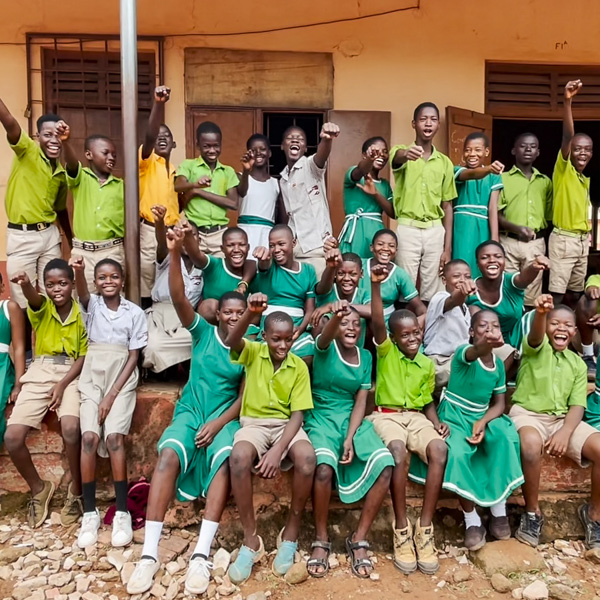From Tamale to Madrid: How Global Digital Culture is Grooming Girls into Sexual Economies
A recent Spanish study on adolescents’ perceptions of OnlyFans reveals troubling parallels with our findings from Tamale, Northern Ghana. Despite their contrasting contexts – digitally connected Spanish teens and Ghanaian adolescents with limited access – the study and our observations in Tamale expose a disturbing trend: the growing normalisation of sexual exploitation among young people.
OnlyFans, launched in 2016 by Leo Radvinsky and now valued at $8 billion, is a subscription platform dominated by sexually explicit content. Although initially designed for diverse content, its rapid growth, especially during the COVID-19 pandemic, has made it a hub for amateur pornography. Young women are drawn to it by the lure of fast money, amplified by influencer culture and viral success stories. But behind the glamour lies a deeper problem: OnlyFans has helped mainstream and monetise online sex work, often pulling younger users into a world of exploitation under the guise of empowerment.
The Spanish study, conducted with 164 high school students aged 12-16, found that many adolescents saw erotic content creation as an achievable income stream, especially for girls who fit certain beauty standards. Meanwhile, during our pilot program in Tamale, we found girls as young as 14 engaging in transactional sex to buy mobile data for social media access.
These scenarios reveal a troubling continuum. In Spain, digital sexual exploitation is increasingly viewed as desirable work. In Tamale, it’s already a survival strategy. Together, they show how poverty, digital exclusion and normalised transactional sex create compounding vulnerabilities that can lead to trafficking.

From Physical to Digital Sexual Exploitation
While the Spanish and Ghanaian cases illustrate different modes of exploitation, they are dangerously connected:
- In Spain, teens view online sex work as a legitimate career path, driven by media exposure and peer influence.
- In Tamale, girls engage in direct sexual transactions to buy digital access, potentially setting the stage for future digital exploitation.
Once Tamale girls access social media using funds from transactional sex, they may be exposed to and influenced by the same content creation culture seen in Spain. What begins as survival can evolve into digital sexual “labour”, seen as a safer, more anonymous alternative.
This represents a dangerous grooming pipeline. Girls already conditioned to trade sex for data are prime targets for digital recruitment campaigns that frame online sexual content as empowering. Each step deeper into the exploitation cycle feels like an “improvement,” but continues their entrapment in sexual economies.
Digital Grooming and Unsolicited Sexual Content
Both studies also document a pattern of unsolicited sexual messaging. In Tamale, every girl in our post-pilot focus groups (ages 12-16) reported receiving explicit images and grooming attempts from adult men. The Spanish study found similar patterns: girls were targeted with messages recruiting them for erotic content, while boys received advertising for consumption.
This constant exposure normalises sexual boundaries, desensitises recipients and serves as societal grooming. Girls receive recruitment pitches masked as modelling jobs or influencer collaborations. Boys are socialised to see sexual content as entertainment. Both pathways support the same exploitative ecosystem.
In Tamale, girls told us they initially accepted friend requests or messages out of hope for friendship, love or financial help, highlighting the blurred line between survival and manipulation. The systemic nature of this grooming, occurring across platforms and continents, makes it even more dangerous.
Transactional Sex in Ghana
Our pilot project and research studies revealed widespread transactional sex in Northern Ghana: children trading sex for data, university students in “hookup” arrangements for fees, and women engaging in sex for food or shelter. Digital exploitation is not a distant threat; it’s a logical next step in an already exploitative system.
We need rigorous research to quantify and address this trend, but the trajectory is clear: physical sexual exploitation is a gateway to digital sexual economies. The appeal of “easy money” makes OnlyFans-like platforms appear aspirational to those already surviving through sex.
The Illusion of Empowerment and Escalating Risk
Both Spain and Ghana show how young people view sexual exploitation as more viable than education or legitimate work. In Spain, it’s glamourised; in Ghana, it is viewed by some as being necessary.
In Tamale, girls who trade sex for data already face:
- Normalised sexual exploitation
- A rejection of formal education and training
- Economic desperation
- Eroded personal boundaries
- Normalised sexual exploitation
These factors make them highly vulnerable to trafficking. Traffickers can exploit their existing behaviours by offering “better” deals, higher payments or promises of escape. What looks like opportunity is actually escalation.
Criminalisation and Gendered Vulnerability
While girls are groomed as sellers of sex, boys often become criminalised for other survival strategies. In informal interviews with 16-20-year-old male drug users in Tamale, we heard how boys turned to petty theft while girls turned to sex.
The result? Boys face visible prosecution, while girls are invisibly exploited. Ghana’s male-dominated justice system often reinforces this imbalance by failing to recognise transactional sex as exploitation and protecting perpetrators through disbelief of the victim, failure to identify the female as a victim or institutional secrecy.
Recent anti-LGBTQ+ laws may worsen these dynamics, reinforcing gendered roles and further limiting options for boys while masking the exploitation of girls as socially acceptable.
The Myth of Digital Anonymity
The Spanish study exposed another myth: that online sexual content is private or anonymous. Participants accessed OnlyFans content despite age restrictions and didn’t fully grasp the permanence of their digital actions.
In Tamale, the danger is magnified by low digital literacy. Girls often borrow phones and don’t understand how content can spread, be saved or resurface later. In Tamale’s conservative Muslim society, where the damage from reputational harm is likely to be severe, digital exploitation can have even more devastating consequences.
The cruel irony is therefore that limited digital access drives girls to transactional sex for connectivity, which then exposes them to risks they don’t fully comprehend. Technology both enables and documents their exploitation.
Conclusion: A Global Challenge Requiring Multi-Level Solutions
In Ghana, the pressure to stay digitally connected, or simply survive, pushes some girls into transactional sex. The system doesn’t offer alternatives; it demands participation.
Both call for urgent action. We need:
Digital literacy programs that equip young people to recognise grooming and protect themselves online
Basic digital safety education covering passwords, selfies, friend requests, sexting, sextortion, deepfakes, anonymity, and the permanence of digital content, as delivered in Module 3 of the HEP schools program
Economic interventions that address the root causes of exploitation, including poverty, digital exclusion, and lack of opportunity
Legal reform to dismantle gender bias and ensure exploiters are held accountable
Capacity-building for social services to collaborate effectively with headteachers and community leaders in safeguarding young people
Above all, we must collectively challenge the platforms and cultural narratives that frame sexual exploitation as empowerment or aspiration. Protecting young people means confronting both the global tech systems that enable exploitation and the local vulnerabilities that drive it.
Citation: Anciones Anguita, K., Checa Romero, M. (2025). Making Money on OnlyFans? A Study on the Promotion of Erotic Content Platforms on Social Media and their Influence on Adolescents. Sexuality & Culture. https://doi.org/10.1007/s12119-025-10389-2

How to Spot Fake Job Offers: Protect Yourself from Scams

The Hidden Connection: Climate Change and Human Trafficking in Ghana

Tackling Child Labour and Trafficking in Ghana: A Fight for the Future

Trafficked to Dubai: How Education Can Help Prevent Human Trafficking




